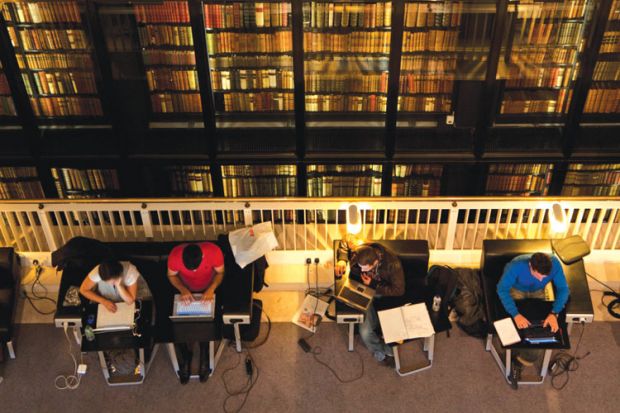Source: Alamy
Available: the scheme offers access to more than 10 million academic articles
A scheme that offers the public free access to taxpayer funded research has got off to a “dismal” start, according to one academic.
Peter Murray-Rust, a reader in molecular informatics at the University of Cambridge, claimed that the Access to Research initiative, which makes some paywalled journal articles freely available to the public at libraries, offers a substandard open access service.
Figures released on 6 August reveal that more than 14,500 people have used the scheme, which is free for councils to join, since it launched in February.
The two-year pilot, led by the Publishers Licensing Society, offers access to more than 10 million academic articles. More than 160 local authorities, or 80 per cent, have now signed up. Libraries in London, Manchester and Taunton had the most users in the first four months of the scheme, and in July the top-ranked search term was “dementia”, a statement from the PLS adds.
The PLS calls the number of users a “good start”, adding that it takes time for local authorities to approve contracts, train staff and start promoting the service. “Now the majority of local authorities are on board we expect [the number of users] to increase as libraries start actively promoting Access to Research to customers,” it adds.
But others disagree. Dr Murray-Rust said that the total number of users reported in six months indicated that just half a person per day was accessing the service in each local authority involved.
“That is appalling,” he said. “It is a pretty dismal record that represents the inadequate nature of the scheme. Money in this is wasted compared with funding truly open resources.”
However, the PLS rejected his calculation, stating that the initiative started with just 10 local authorities in February 2014, with local authorities joining month on month and not reaching 80 per cent participation until July 14.
Dr Murray-Rust continued: “It is a sop to government in providing a substandard service that can be claimed as a contribution to openness…We need a much better commitment to making research…completely openly available.”
Graham Steel, lead coordinator of Open Science Scotland, a non-profit organisation that promotes open content, said that he welcomed efforts to improve access to academic research but described the scheme as “draconian in nature”.
He added: “Online resources such as CORE [COnnecting REpositories] provide access to more than 20 million open access articles. As such, why physically visit a public library when you have access to much more content for free online?”
Register to continue
Why register?
- Registration is free and only takes a moment
- Once registered, you can read 3 articles a month
- Sign up for our newsletter
Subscribe
Or subscribe for unlimited access to:
- Unlimited access to news, views, insights & reviews
- Digital editions
- Digital access to THE’s university and college rankings analysis
Already registered or a current subscriber? Login





